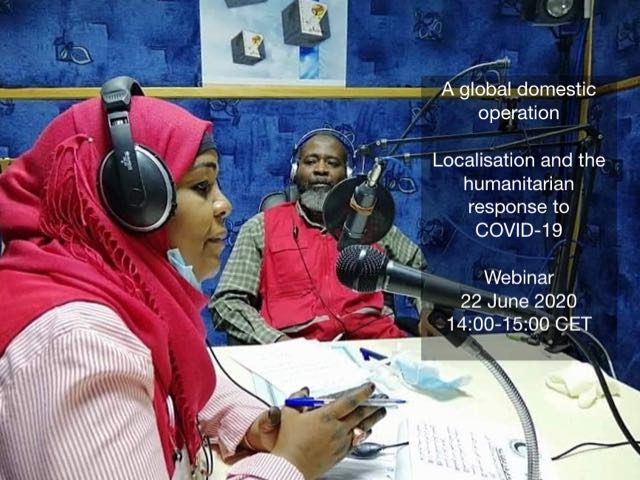
Overview
The COVID pandemic has brought both opportunities and risks when it comes to progress in localisation, in the sense of an international humanitarian system that is “as local as possible, as international as necessary.” Official movement and travel restrictions designed to control the spread of the virus have a potential impact on all humanitarian actors, but may have an even greater impact on the common ways of working of international responders in light of the difficulties of international travel. Self-imposed restrictions may be an even greater hurdle in this respect for international organisations seeking to reduce the exposure of their staff.
This dynamic makes the implementation of existing international commitments on localisation, notably those in the Grand Bargain, to empower and fund local actors to lead aid delivery, much more urgent. This is recognized in the UN’s Global Humanitarian Response Plan which emphases “the importance of involving and supporting local organizations given the key role they are playing in this crisis.”
In May, the Grand Bargain’s Localisation Workstream issued 6 “guidance notes” synthesizing its top conclusions and recommendations based on research, country missions and a regional conferences held in 2018-19. Drawing in part on this experience, the IASC also recently issued its own “Interim guidance note on localisation and the COVID-19 response”.
How can these lessons and recommendations be effectively applied in international response efforts? What lessons can we learn from past operations? What needs to be done differently? How do we walk the talk? This webinar will seek answers to these and your questions.
Panel
- Edward Kallon, UN Resident Coordinator and Humanitarian Coordinator for Nigeria
- Terez Curry, President, Bahamas Red Cross Society
- Muhammed Amad, Executive Director, Initiative for Development & Empowerment Axis (IDEA), Pakistan
- Suzanna Tkalec, Director of Operations, Caritas Internationalis
Co-chairs
- Philippe Besson, Head, Multilateral Division, Swiss Agency for Development and Cooperation, Federal Department of Foreign Affairs
- Cecile Aptel, Director, Policy Strategy and Knowledge Department, International Federation of Red Cross and Red Crescent Societies
